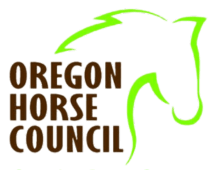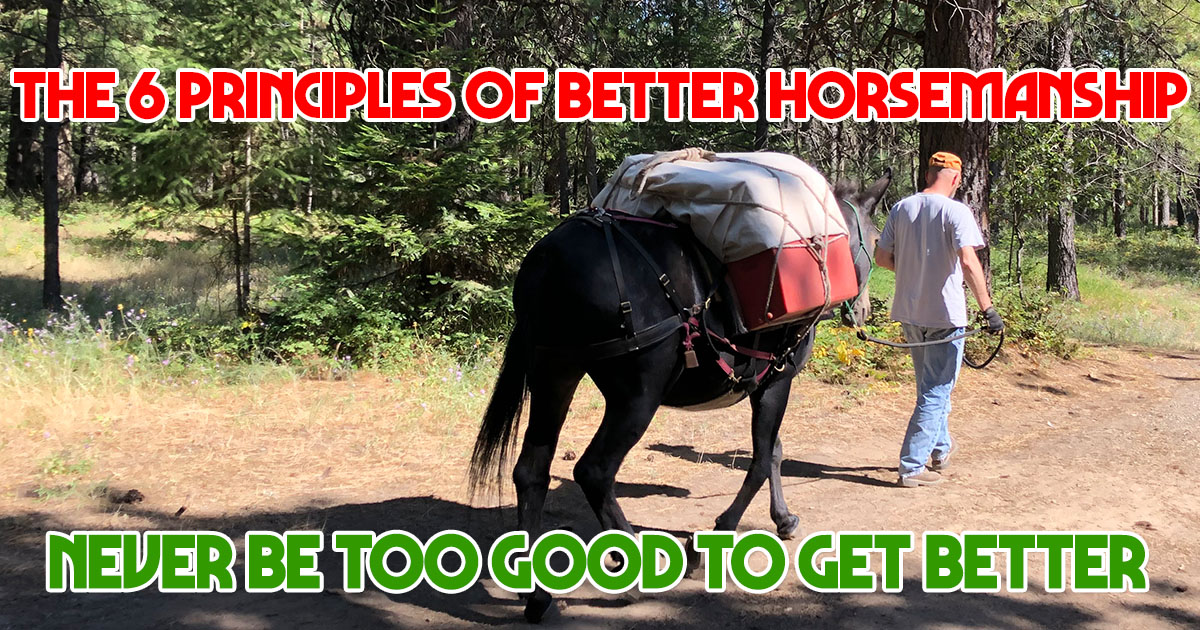While doing clinics at the Equifest of Kansas, I paused to check out the weekly Ty Evans newsletter. I’m glad I did. Ty posted a list of 6 Principles of a High-Performance Mindset, gleaned from Justin Su’a, a Mental Performance Coach for elite athletes. I think that we can apply these 6 principles to better horsemanship
1. Never be too good to get better.
2. Do what you do on purpose, with purpose.
3. Little by little, a little becomes a lot.
4. Focus on the process, not the results.
5. Embrace the boredom of consistency.
6. Learn from failure; learn from success.
These 41 words, forming six ideas, stayed with me through the expo. And they kept me company on the way home. Somewhere around Livingston, MT, I started recording my thoughts on how these mindsets can help me as someone who wants to become a better horseman.
Never be too good to get better:
This principle underscores the importance of continual learning and improvement for us as horsemen. No matter how skilled or experienced we may be, there is always room for growth and refinement in our technique, understanding, and communication with our critters. This could involve seeking feedback from mentors, attending clinics or workshops, or remaining open-minded to new approaches and perspectives. We all stand on the shoulders of others. For me, a few of those others are Ty Evans, Ed Haefliger, and Terry Wagner. Find mentors that speak to your soul.
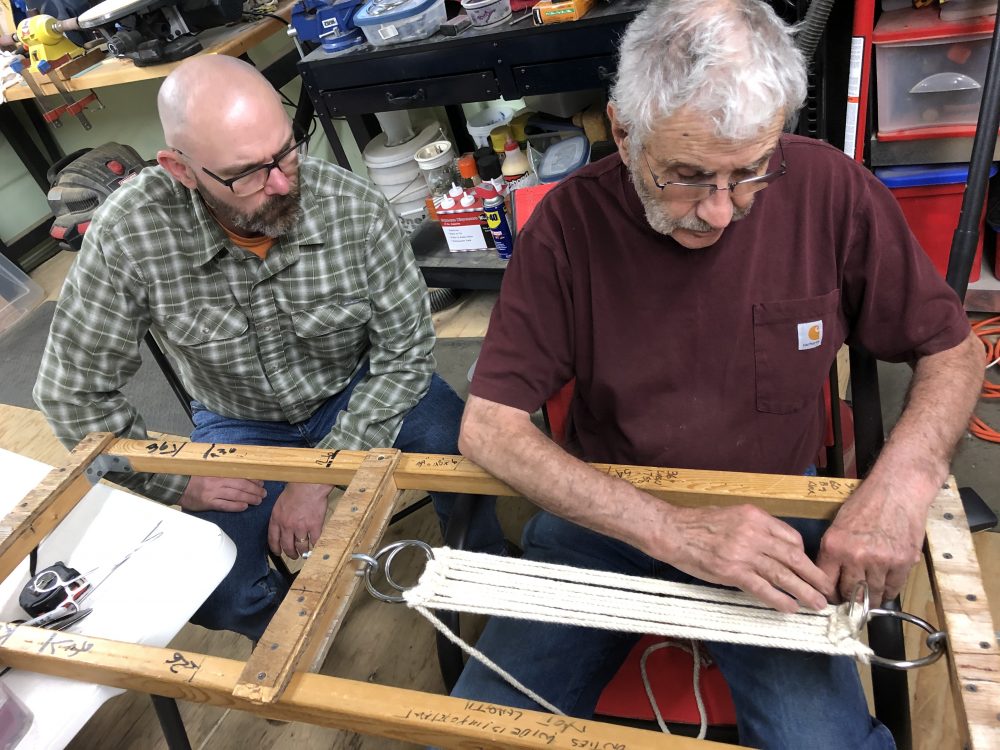
Do what you do on purpose, with purpose:
Good horsemanship requires intentionality in everything we do. Whether grooming, tacking up, riding, or working our animals on the ground, each interaction should be deliberate and focused. Active and engaged horsemen should be mindful of their movements and communication with the horse. We should work towards increasing clarity and consistency in all of our cues and commands.
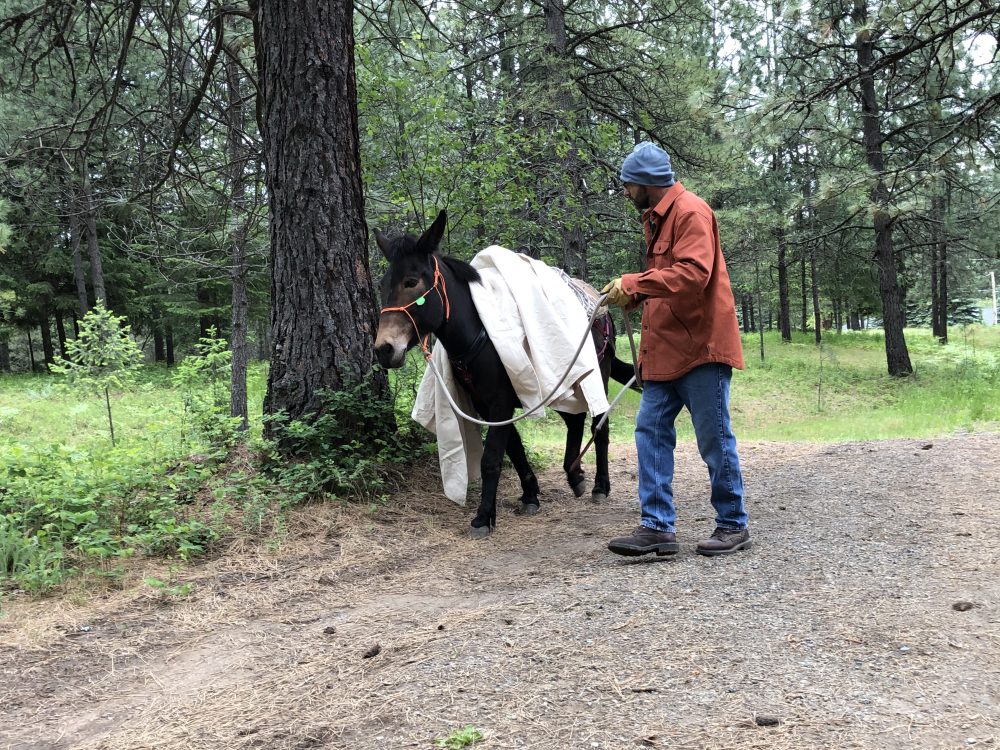
Little by little, a little becomes a lot:
This principle comes from an ancient Tanzanian proverb that still rings true. Progress in horsemanship and life comes in small, incremental steps. Consistency and patience are essential when building trust with a skeptical mule, refining a particular skill, or overcoming a challenge. This idea should remind riders that even minor improvements or efforts will accumulate over time to make a significant difference in our partnership with our animals. If we put in the work and do the little things every day, in due time, those little things will add up and get us to where we want to be.
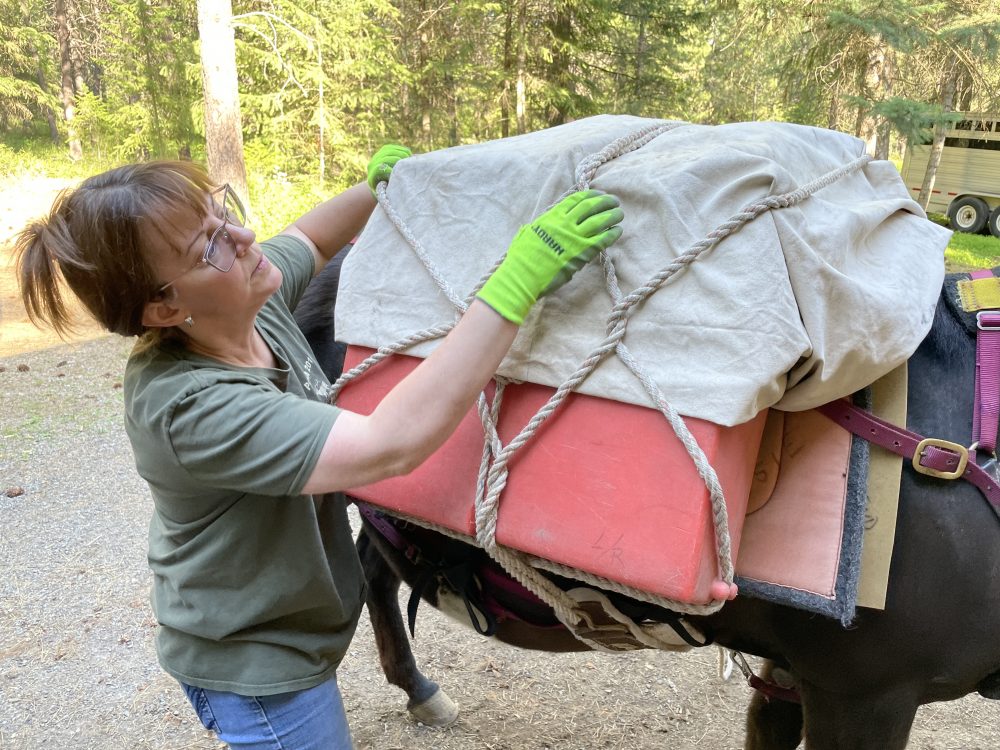
Focus on the process, not the results:
Rather than fixating solely on achieving specific outcomes, such as winning competitions or mastering advanced techniques, this principle encourages us to concentrate on the journey of improvement. If we divide our goals into smaller steps, we’ll be able to see progress even when the end goal has yet to be reached. By focusing on the process—such as building a solid foundation, refining our skills, and nurturing our bonds with the animals—we can cultivate a more sustainable and fulfilling approach to horsemanship.
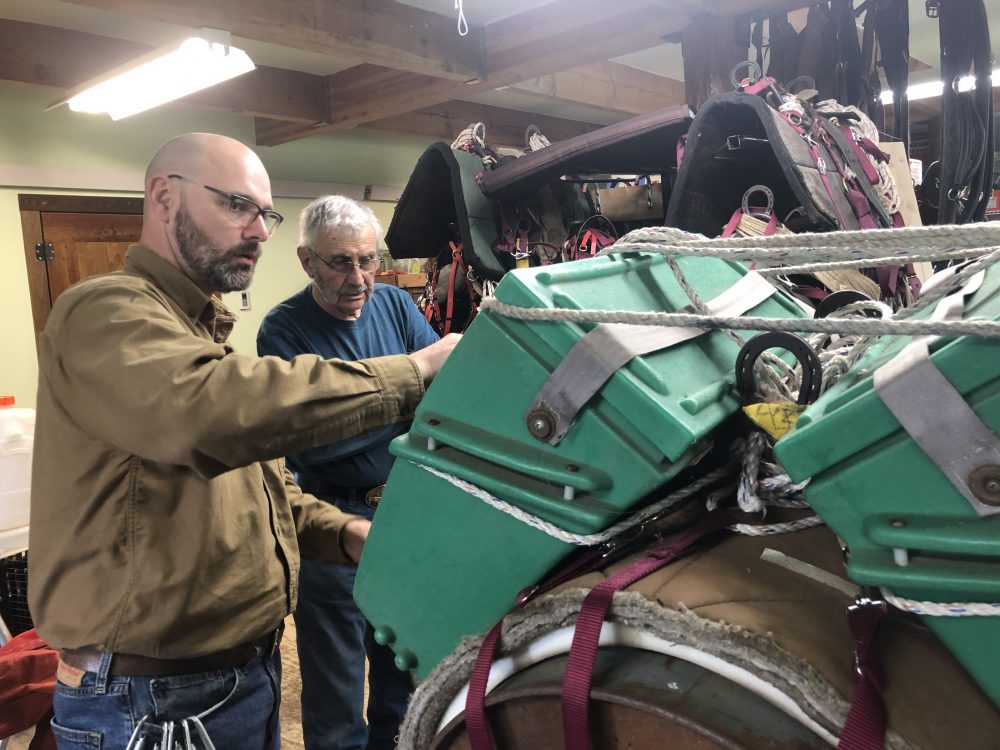
Embrace the boredom of consistency:
Good horsemanship often involves repetitive tasks and routines, such as regular groundwork sessions, grooming, and even maintenance chores. While these activities may seem mundane at times, they are essential for fostering discipline, building trust, and reinforcing positive habits in both horse and rider. Consistency is critical when working on new skills. Whether it’s learning to side pass, moving the hinds, or learning a new language, consistent practice is paramount. Regular engagement allows for gradual progress and mastery over time and ensures that knowledge and proficiency are retained and built upon. Embracing the “boredom” of consistency means recognizing the value of these daily practices in contributing to our long-term progress and success.
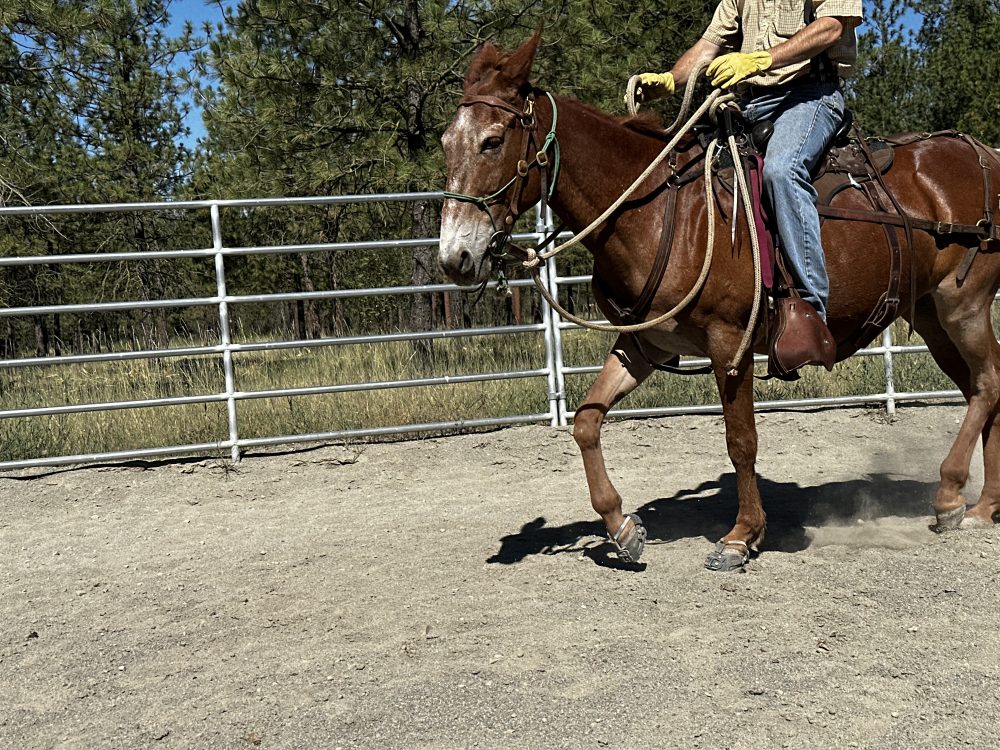
Learn from failure, learn from success:
Another way of saying this could be “failure sucks, but instructs.” In horsemanship, as in life, both failures and successes offer valuable lessons. Mistakes and setbacks provide opportunities for reflection, growth, and refinement of skills. Conversely, achievements and breakthroughs offer affirmation and motivation to continue pushing forward. The basic idea is that as soon as feasible after some action occurs, we should consider what went right, what went wrong, and what could be done better next time. I do this after every horse camping trip and clinic that I lead. By adopting a mindset of continuous learning from positive and negative experiences, we can deepen our understanding, resilience, and effectiveness in all interactions with our animals both in the arena and on the trail.
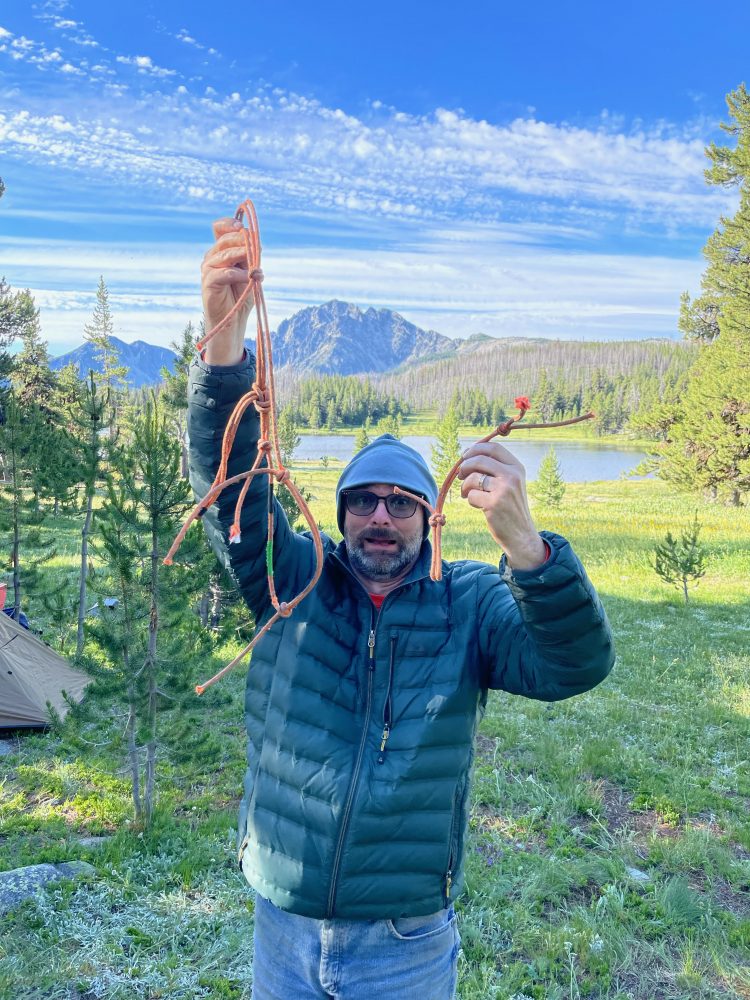
Well, there you go: the six principles of a high-performance mindset and their application to horsemanship. They emphasize continuous learning, intentional interactions, incremental progress, focusing on the journey rather than outcomes, embracing consistency, and learning from both failures and successes. Practicing these ideas can foster growth, resilience, and effectiveness in our equine-human interactions. For more thoughts on better trail riding and horse camping and the world’s most extensive and accurate guide to equine trails and camps, visit us at www.TrailMeister.com.
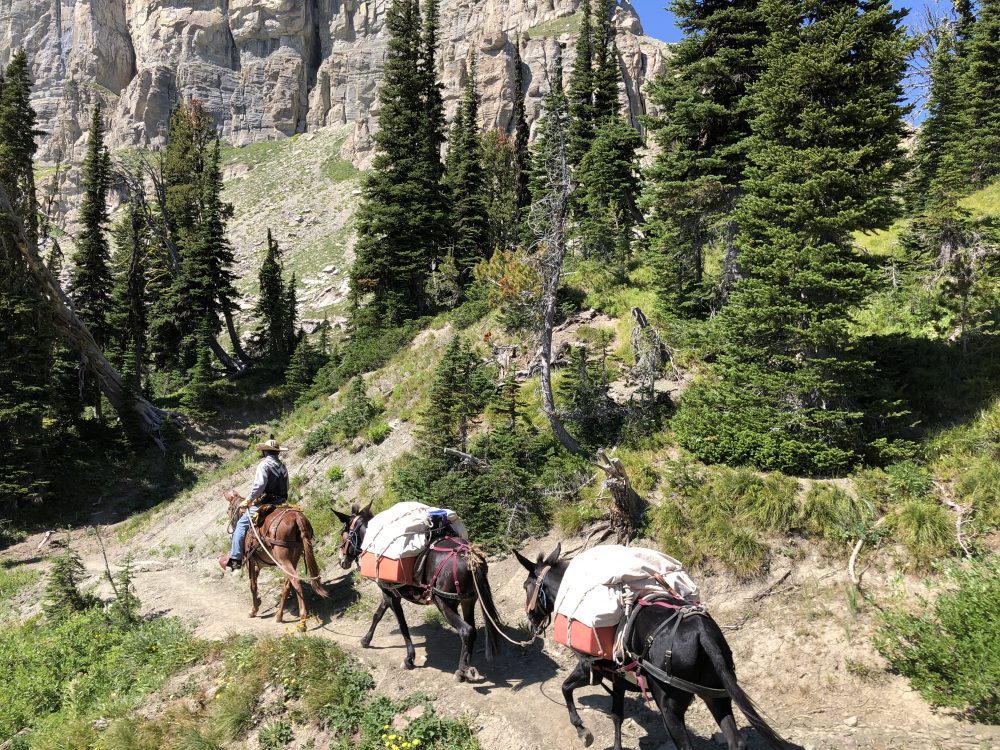
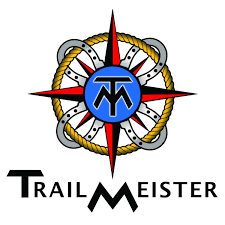
TrailMeister is the world’s largest horse trail and camp guide. With all of the info that you need on thousands of horse trails and camps across the US and Canada.
